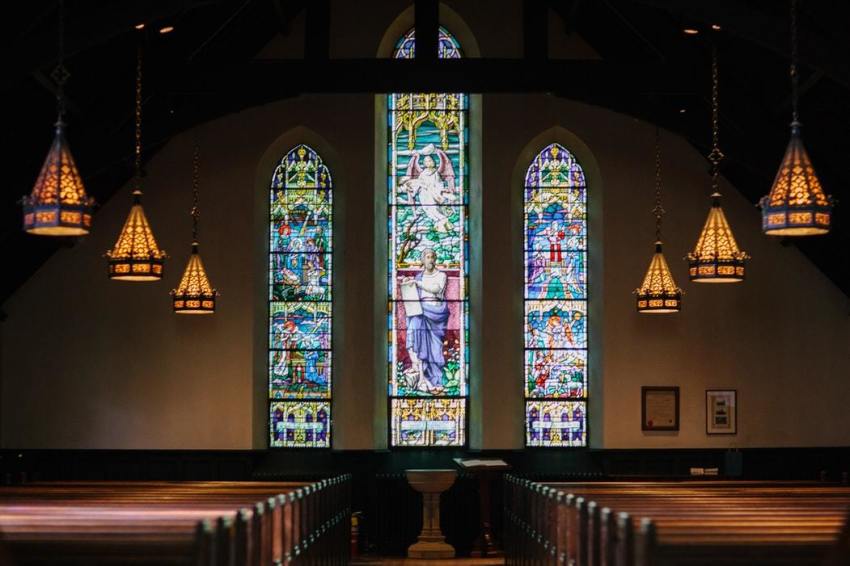Secular groups challenge legality of relief loans for churches impacted by COVID-19

Secularist advocacy groups are pressuring the Small Business Administration to discriminate against churches and religious nonprofits struggling during the coronavirus lockdown when administering protection loans created by the new stimulus package.
American Atheists, a nonprofit advocacy group that promotes separation of church and state, teamed up with like-minded groups to send a letter to SBA Administrator Jovita Carranza Tuesday.
They pushed back against calls for the agency to treat churches and religious charities equally when administering the loan program created by last week’s legislation.
Under the Coronavirus Aid, Relief, and Economic Security (CARES) Act, about $350 billion in government payroll protection loans are available to organizations to help pay for things like payroll and employee-related expenses.
As the agency prepares to issue regulations on the newly passed stimulus bill, the organizations asked the agency not to set aside what their letter called “vital constitutional protections for religious freedom.”
The organizations assert that the Establishment Clause of the First Amendment precludes government funding of religious activities.
“Our historical understanding of religious liberty is built on the idea that government entanglement with religion can be a profound threat to individual rights, too often leading to religious oppression,” the groups stated in the joint letter sent March 31.
“A core principle of religious liberty is that the coercive taxing power of the government cannot be used to force citizens to support a religion that is not their own.”
American Atheists were joined in the letter by American Humanist Association, Center for Disability Rights, Center for Inquiry, Freedom From Religion Foundation, National Black Justice Coalition, National Center for Transgender Equality and Secular Coalition for America.
“Even during this emergency, Congress recognized that it is essential to protect our constitutional separation of religion and government by, for example, providing that institutions of higher education receiving funds in the stimulus package may not use such funding for ‘capital outlays associated with facilities related to… sectarian instruction, or religious worship,’" the letter reads.
The organizations argue that SBA regulations already provide that “businesses principally engaged in teaching, instructing, counseling or indoctrinating religion or religious beliefs, whether in a religious or secular setting” are not eligible for SBA business loans.
“Moreover, businesses are not eligible for economic disaster loans that are ‘Principally engaged in teaching, instructing, counseling, or indoctrinating religion or religious beliefs, whether in a religious or secular setting,’” the letter continues.
“These provisions would apply to the CARES Act, respectively the Paycheck Protection Program and the Emergency Economic Injury Disaster Loans, which both provide loans to small businesses and nonprofits.”
On Thursday evening, Republican Sen. Josh Hawley of Missouri sent a letter urging SBA officials to correct local and regional offices that are telling churches and religious nonprofits that they are not eligible to participate in the Paycheck Protection Program.
Hawley further demanded that the SBA “must not arbitrarily disqualify churches and other religious nonprofits.’ He argued that reports of misinformation at SBA local offices underscore the need for swift “official guidance and program rules.”
“SBA offices are communicating to churches that they are not eligible for the program before the application process,” Hawley wrote. “I am alarmed by these erroneous instructions, which directly contradict the text of the statute. You must rectify this issue immediately.”
Hawley pointed to Section 1102 of the CARES ACT to argue that “unaffiliated non-profit entities with under 500 employees that are structured as 501(c)(3) organizations are eligible for assistance.”
“This includes churches and other religious nonprofits,” he stressed. “As I noted in my previous letter dated April 1, 2020, organizations with a principal religious purpose are not excluded from assistance under the Paycheck Protection Program.”
Russell Moore, president of the Southern Baptist Convention’s Ethics & Religious Liberty Commission, contended in an op-ed that the SBA loans don’t violate the principle of separation of church and state.
“The loans themselves, whether to a church or to a hardware store, are not from the government at all, but, as always, from banks,” Moore pointed out. “The government’s role is simply to guarantee to the banks these loans, in case of default. That does not privilege or penalize any religion in any way different from any other entity.”
Moore added that as many church leaders are reluctant to take funding from the government, many are “uneasy with the fact that some of these loans may turn out to be forgivable” depending on how the borrowed funding is used.
“Some are concerned that were they to take out SBA-backed loans, especially if they turn out to be forgivable, that this will invite the government in to dictate their ministries or policies,” he explained. “We have no indication that such would be the case, and, were any future governing authority to seek retroactively to restrict the First Amendment on such grounds, I believe such a move would be successfully repudiated in court.”
Moore compared SBA loans to a church calling the local fire department when there is a fire.
“This is not ‘government support’ of that church,” he argued. “It’s the government’s interest in keeping people from being killed in a conflagration. A similar dynamic is at work here. The government would no more be entangled in your church’s ministry as a result of this than your bank is now.”
In 2017, the U.S. Supreme Court ruled that the state of Missouri could not discriminate against a church daycare facility that applied to a secular funding program to help improve the safety of its playground just because of its inherent religious affiliation.
The letter from the secular groups urges the SBA not to apply the Supreme Court’s 2017 ruling because it did not “address religious uses of funding or other forms of discrimination.”
Follow Samuel Smith on Twitter: @IamSamSmith
or Facebook: SamuelSmithCP



























